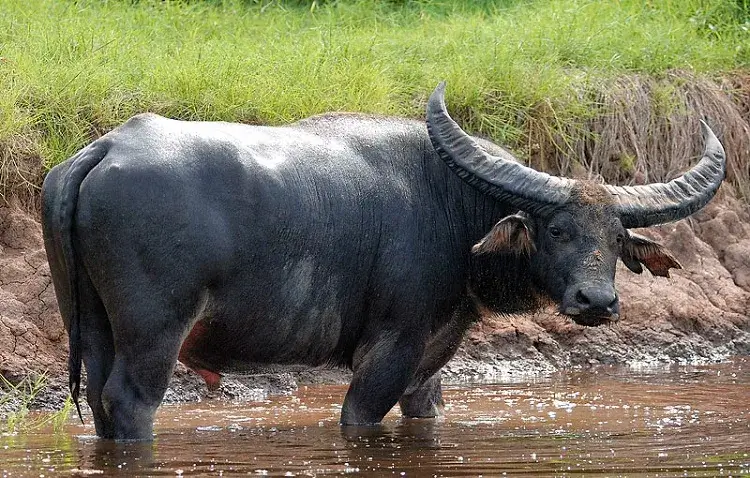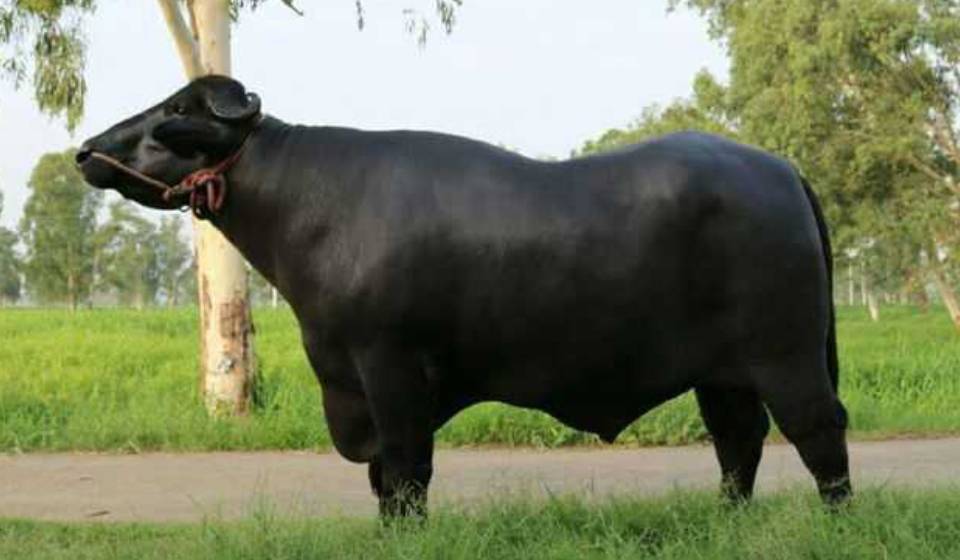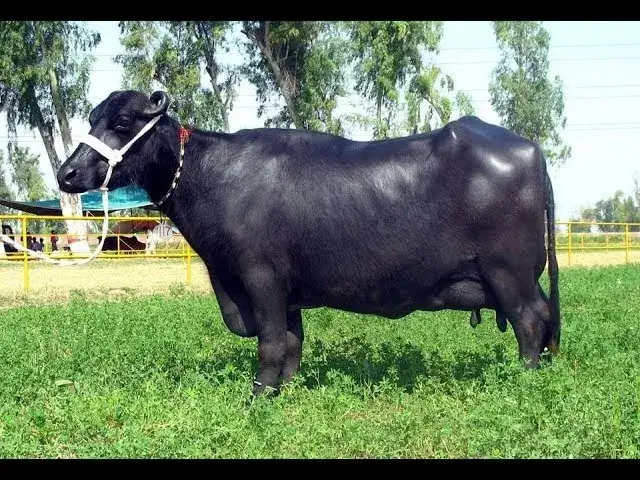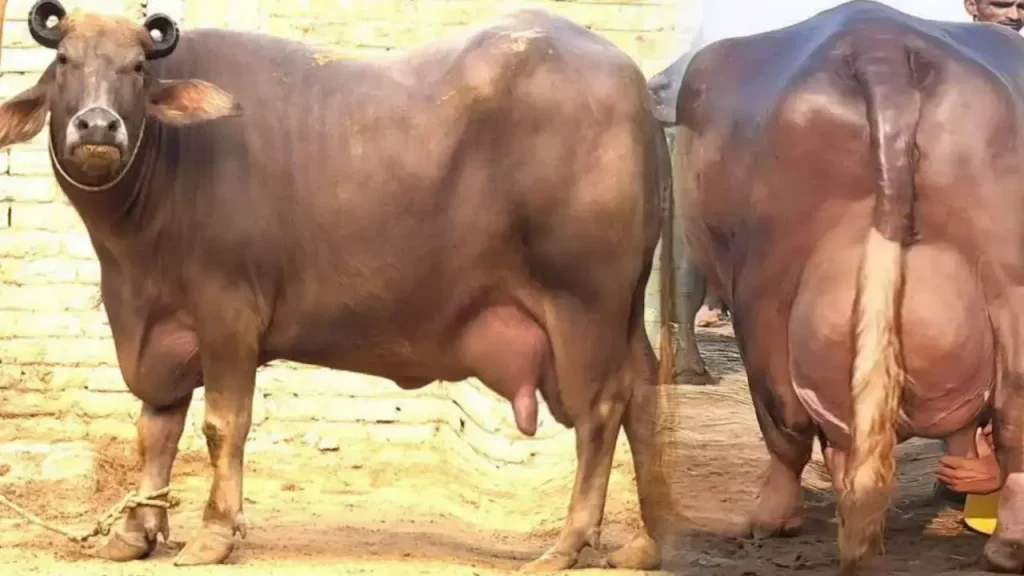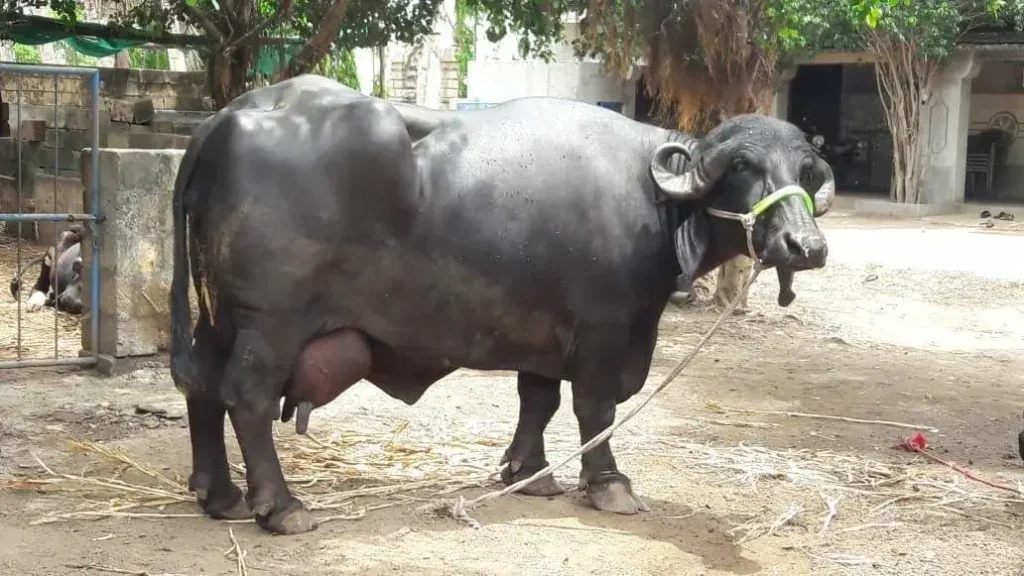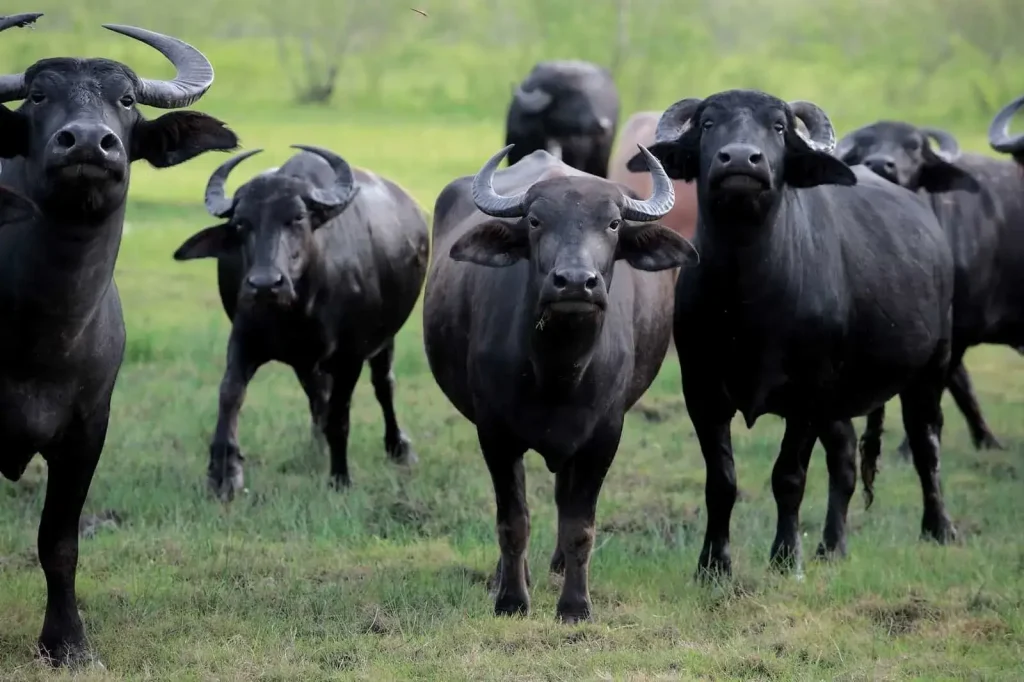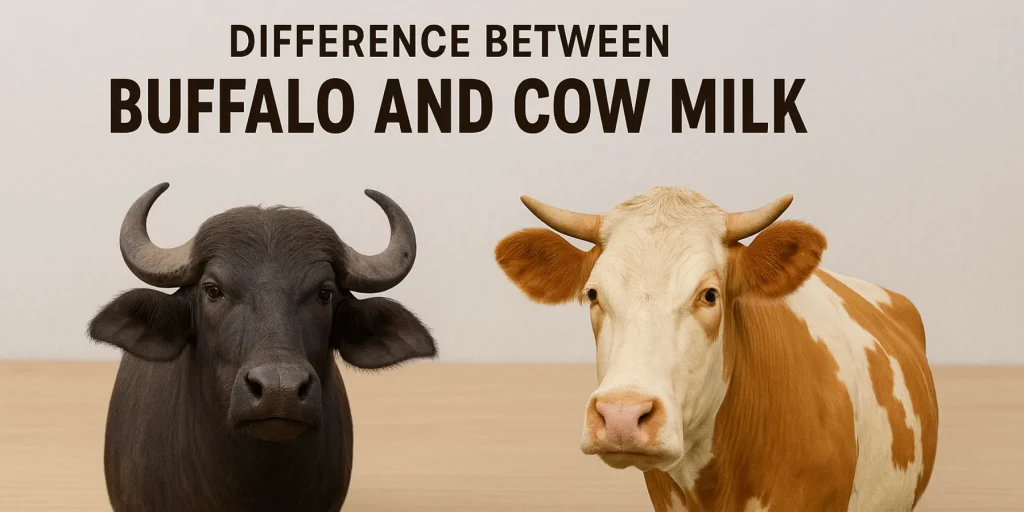🐃 Swamp Buffalo – A Trusted Partner in Sustainable Farming
🌏 Introduction to the Swamp Buffalo
The Swamp Buffalo is a resilient and hardworking breed of water buffalo known for its ability to thrive in wet, marshy environments. Predominantly found across Southeast Asia and China, this gentle animal plays a vital role in supporting inclusive, community-based farming, especially in rice cultivation, by assisting people of all backgrounds and experiences in agricultural livelihoods.
📜 Origins and History
With roots tracing back thousands of years, the Swamp Buffalo has long been domesticated for its strength and adaptability. Originating in the Indo-China region and China, these buffalo became essential partners in farming, particularly in regions with heavy rainfall or flooded fields. Today, they continue to empower rural families with their labor, meat, and manure, contributing to both economic and environmental sustainability.
🧬 Physical Characteristics
Swamp Buffaloes possess several unique traits that make them especially suited for swampy and wet environments:
- 🎨 Commonly dark gray or slate blue
- 🌀 Broad, crescent-shaped horns extending sideways
- 🌊 Large hooves designed for navigating muddy terrain
- 📏 Strong, compact build for working in the field
- 🧘 Friendly and cooperative temperament
💪 Strength and Draft Power
These buffalo are renowned for their physical endurance and supportive role in smallholder farming:
- 🚜 Excellent for plowing rice paddies and transporting loads
- 🌾 Capable of working in areas where modern equipment cannot operate
- 🔥 Able to sustain long hours of work with resilience
- 💼 Ideal for both flat and rugged terrains
🌱 Feeding and Nutrition
Swamp Buffaloes are economical and easy to maintain:
- 🌿 Feed includes grass, crop residues, and rice straw
- 🌾 Well-suited to low-cost diets with minimal inputs
- 💧 Need consistent access to fresh water and mud for wallowing
🚿 Natural Need for Water
These buffalo enjoy and rely on water for comfort and health:
- 🛁 Wallowing cools them down and reduces stress
- 🐾 Mud helps protect them from skin issues and parasites
- 💦 Clean water improves their well-being and productivity
🌾 Role in Environmentally Friendly Agriculture
Swamp Buffaloes contribute significantly to regenerative and eco-conscious farming practices:
- ♻️ Produce natural fertilizer that nourishes the soil
- 🚫 Reduce the need for fuel-powered machinery
- 👨👩👧👦 Support cultural and traditional agricultural systems
🍖 Contribution to Nutrition
Though not raised primarily for milk, Swamp Buffaloes provide quality protein through their meat:
- 🥩 Meat is lean, nutritious, and rich in iron
- 📦 Often used in preserved or value-added food products
- 🏷️ Increasingly recognized for its health benefits in local markets
🏡 Housing and Daily Care
These buffalo thrive in simple, inclusive farming environments:
- 🛖 Require shelter with shade and proper drainage
- 🧼 Clean and comfortable surroundings promote health
- 🚿 Access to water and mud areas is crucial
🤝 Role in Rural and Inclusive Livelihoods
Swamp Buffaloes are not just livestock—they are partners in life for many communities:
- 🧑🌾 Accessible to people of all genders and abilities
- 🧓 Empower older adults and young people alike in managing farms
- 🎓 Provide learning opportunities in sustainable agriculture
🧬 Breeding and Reproduction
Swamp Buffaloes are generally easy to breed and raise:
- 🍼 Calving occurs approximately every 18–24 months
- 👶 Calves are hardy and adapt well to local conditions
- 🧑⚕️ Benefit from basic veterinary support and care
🌍 Geographic Reach and Significance
Swamp Buffaloes are widely distributed across multiple countries:
- 🇨🇳 Most populous in China
- 🇹🇭 Common in Thailand, Vietnam, the Philippines, and Indonesia
- 🌐 Recognized and valued globally for their farming contributions
🏆 Key Qualities of Swamp Buffaloes
- 💪 Strong work capacity in diverse terrains
- 🌿 Can survive on simple, local feeds
- 🚿 Naturally adapted to humid and tropical regions
- 👐 Gentle and manageable for people of all experience levels
🎉 Fun Facts About Swamp Buffaloes
- 🌈 Lifespan can reach up to 25 years
- 🏞️ Often featured in cultural events and local fairs
- 🌧️ Comfortable working even in heavy rain and flooded fields
💼 Economic Impact
Swamp Buffaloes are vital assets in rural development and household security:
- 🏡 Strengthen family incomes through diversified farm outputs
- 🌾 Enhance food production by boosting rice yields
- 🧺 Help preserve traditional and resilient farming models
💚 Supporting Inclusive and Sustainable Farming
Raising Swamp Buffaloes allows communities to:
- 🌱 Promote biodiversity and protect indigenous breeds
- 🔄 Build circular and regenerative food systems
- 🌍 Reduce environmental impact while supporting all farmers
❓ Frequently Asked Questions
Q1: What makes Swamp Buffaloes different from River Buffaloes?
A: Swamp Buffaloes are better suited for draft work in wetland areas, have wider horns, and prefer marshy terrain. River Buffaloes are primarily used for high milk production.
Q2: Are Swamp Buffaloes suitable for beginner farmers?
A: Yes, their gentle temperament and low input needs make them great for people new to livestock farming, including women, elders, and youth in agriculture.
Q3: Can Swamp Buffaloes be raised for milk?
A: While they produce milk, the volume is generally low. However, it is nutritious and often consumed within the household or community.
Q4: What is the average weight of a Swamp Buffalo?
A: Mature males typically weigh 400–600 kg, while females range from 350–500 kg, depending on feeding and care.
Q5: Do they need special infrastructure?
A: Not necessarily. Basic shelter, clean surroundings, and regular access to water and mud for wallowing are sufficient for their health and comfort.
✅ Conclusion – A Reliable Ally in Agriculture
The Swamp Buffalo is more than just a working animal—it is a dependable and inclusive ally in the journey toward sustainable agriculture. With its ability to thrive in wet environments, contribute to food security, and empower rural communities, this breed plays an essential role in building resilient farming systems. Whether you’re practicing traditional rice cultivation or embracing eco-friendly farming, the Swamp Buffalo will always stand by your side. 🐃🌾💚
Murrah Buffalo
🐃 Swamp Buffalo for Sale
The Swamp Buffalo is a sturdy, hardworking breed native to Southeast Asia, primarily used for plowing rice fields and other agricultural work. Known for their incredible strength, docile nature, and ability to thrive in hot, humid climates, Swamp Buffaloes are essential livestock in many rural economies. If you’re looking to buy or adopt a Swamp Buffalo, explore the country-wise listings below.
- Swamp Buffalo for Sale in Australia
- Swamp Buffalo for Sale in Canada
- Swamp Buffalo for Sale in Pakistan
- Swamp Buffalo for Sale in India
- Swamp Buffalo for Sale in Indonesia
- Swamp Buffalo for Sale in the United Arab Emirates
- Swamp Buffalo for Sale in the Philippines
- Swamp Buffalo for Sale in Nigeria
- Swamp Buffalo for Sale in Malaysia
- Swamp Buffalo for Sale in the United States
- Swamp Buffalo for Sale in the United Kingdom
